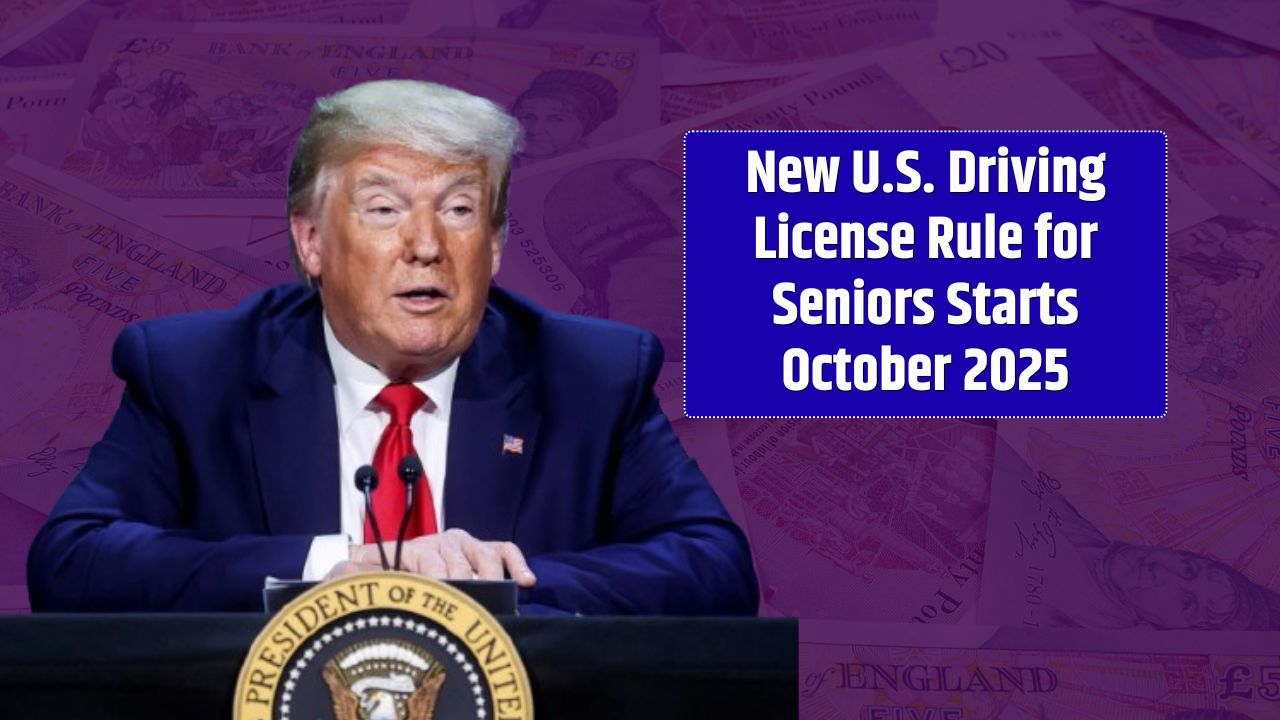By the time October 2025 arrives, the U.S. will be just weeks away from seeing one of the most consequential shifts in driver licensing rules in decades—rules aimed squarely at older drivers. Starting October 2025, the Department of Transportation’s new federal framework for drivers aged 70 and above begins rolling out across the states.
This isn’t about punishing seniors or prying away car keys. Think of it more like a routine health check-up for your driving skills—making sure your eyes, reflexes, and judgment are still road-ready. With Americans living longer and driving longer than ever before, the new system is designed to balance freedom with safety.
Why This Law Matters Now
The numbers tell the story. Right now, there are 48 million Americans aged 65 and up with valid driver’s licenses. According to projections from the National Highway Traffic Safety Administration (NHTSA), that figure will climb steadily over the next 20 years. More seniors behind the wheel means more potential for crashes if medical or cognitive changes aren’t spotted early.
At the same time, cars aren’t optional for many older adults. Driving is how seniors buy groceries, get to doctor visits, see grandkids, and maintain a sense of independence. The law is meant to protect that independence—while also protecting everyone else on the road.
How the New Tiered Renewal System Works
Instead of slapping an age cap, the law builds in a tiered system. Here’s the breakdown for October 2025 implementation:
| Age Group | Renewal Frequency | Additional Requirements |
|---|---|---|
| 70–79 | Every 4 years | Vision test (in-person or telehealth, depending on state) |
| 80–86 | Every 2 years | Vision + reaction time/cognitive screening |
| 87+ | Every year | Full in-person road assessment |
In short, the older you get, the more frequent—and more thorough—the check-ups. But if you’re still sharp at 87, you’ll simply pass the tests and keep driving.
Reporting Unsafe Drivers
Another October 2025 change: family members, doctors, or even community officials can report concerns about a senior’s driving. A flagged driver could be asked to complete a medical exam or an additional road test. The idea isn’t to embarrass anyone—it’s a preventive measure to stop avoidable tragedies before they happen.
State-by-State Rollout
Even though this is a federal framework, each state DMV decides the fine print. For example:
- California: already requires in-person renewals for drivers 70+. Expect tighter testing here.
- Florida: likely to continue allowing some online renewals but with mandatory eye exams starting at 80.
- Illinois: already has a road test requirement beginning at age 87.
- Texas: leaves some discretion to local DMV offices after 79.
States will publish senior driver guides on their DMV websites, so checking your state’s portal is the safest way to prepare.
Restricted Licenses
Not every outcome is “pass or fail.” Seniors with specific limitations may be issued restricted licenses, such as:
- Daytime driving only
- Driving within a certain distance of home
- No highway driving
This approach lets seniors keep autonomy while reducing risks tied to conditions like poor night vision.
Preparing for October 2025
If you or a loved one is 70+, the best move is to get ready now:
Stay updated on your state’s DMV announcements.
Schedule a comprehensive eye exam at least 90 days before renewal.
Gather medical clearance letters from specialists if you have conditions like diabetes, stroke history, or memory concerns.
Consider taking a defensive driving course—in some states, it may even help waive the road test.
FAQs:
Does turning 70 mean I automatically lose my license?
No. You’ll simply be subject to the new tiered renewal system starting at age 70.
What kind of tests will I have to take?
Vision tests are required for everyone 70+, with reaction-time or cognitive screenings added at 80+, and annual driving assessments at 87+.
Can family members really report me to the DMV?
Yes, but the DMV will review the claim fairly—typically requiring a medical or driving assessment before making any decision.










